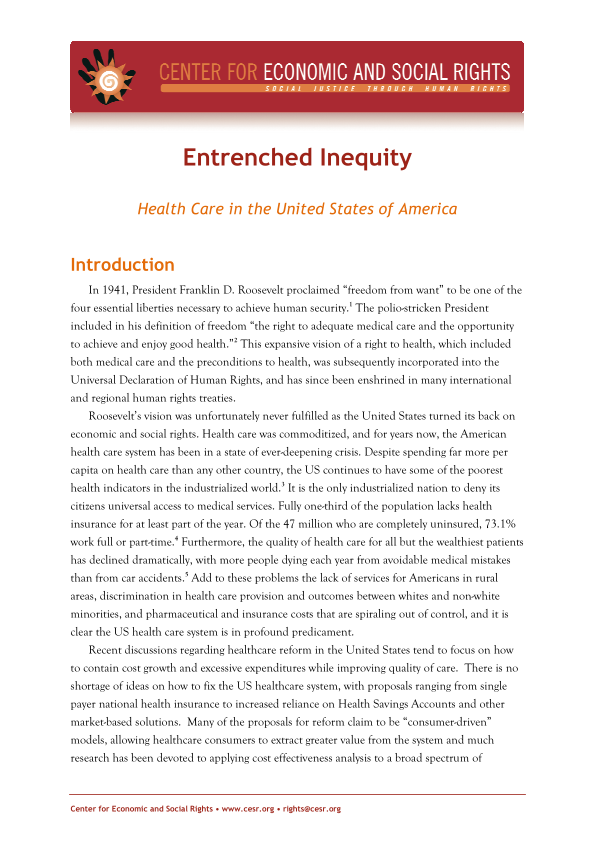In 1941, President Franklin D. Roosevelt proclaimed ???freedom from want??? to be one of the four essential liberties necessary to achieve human security. The U.S. President included in his definition of freedom ???the right to adequate medical care and the opportunity to achieve and enjoy good health.??? This expansive vision of a right to health, which included both medical care and the preconditions to health, was subsequently incorporated into the Universal Declaration of Human Rights, and has since been enshrined in many international and regional human rights treaties.
 Despite spending far more per capita on health care than any other country, the United States continues to have some of the poorest health indicators in the industrialized world. It is the only industrialized nation to deny its citizens universal access to medical services. Fully one-third of the population lacks health insurance for at least part of the year.
Despite spending far more per capita on health care than any other country, the United States continues to have some of the poorest health indicators in the industrialized world. It is the only industrialized nation to deny its citizens universal access to medical services. Fully one-third of the population lacks health insurance for at least part of the year.
An updated 2009 CESR briefing reviews and analyzes the right to health in the United States. It examines the legal framework governing the right to health, with a focus on health care, in the United States. It discusses the structure of the current U.S. health care system and its impact on health care delivery. It examines how the U.S. system measures up to international human rights standards. Finally, it presents the briefing???s conclusions with respect to what needs to be done to align the U.S. health care system with international standards.
